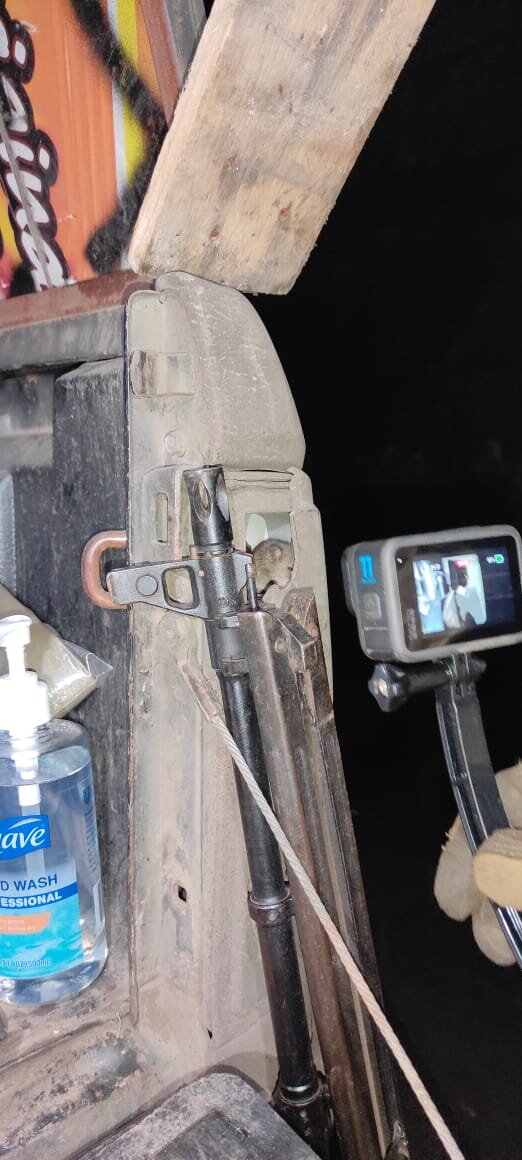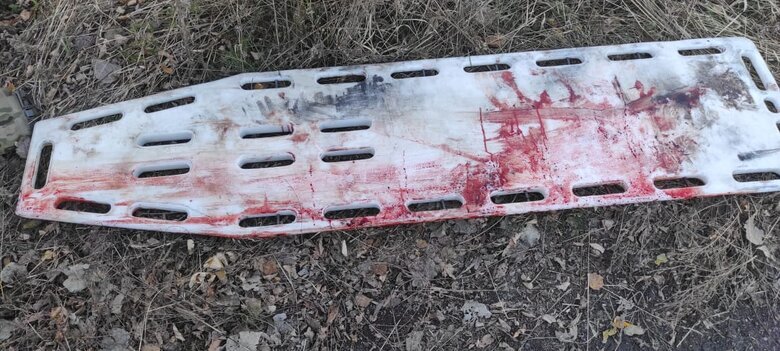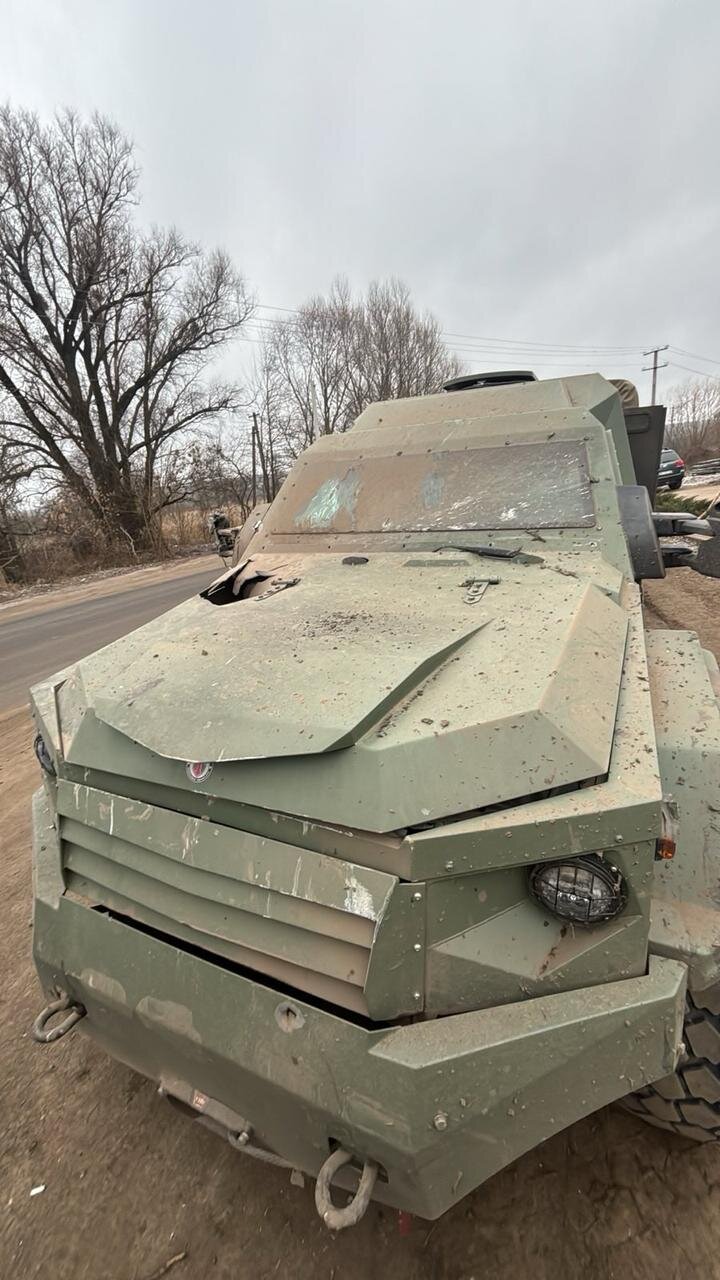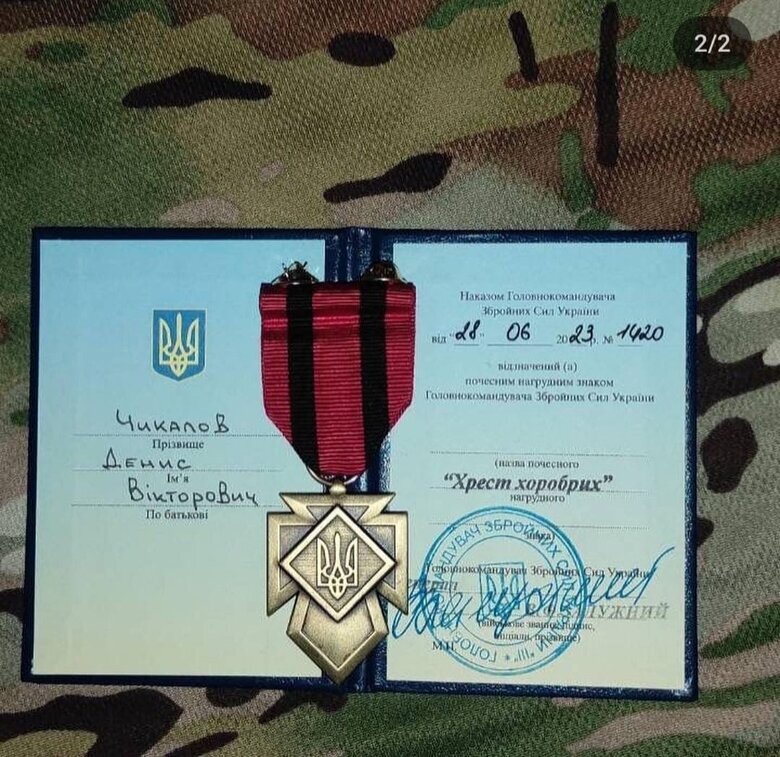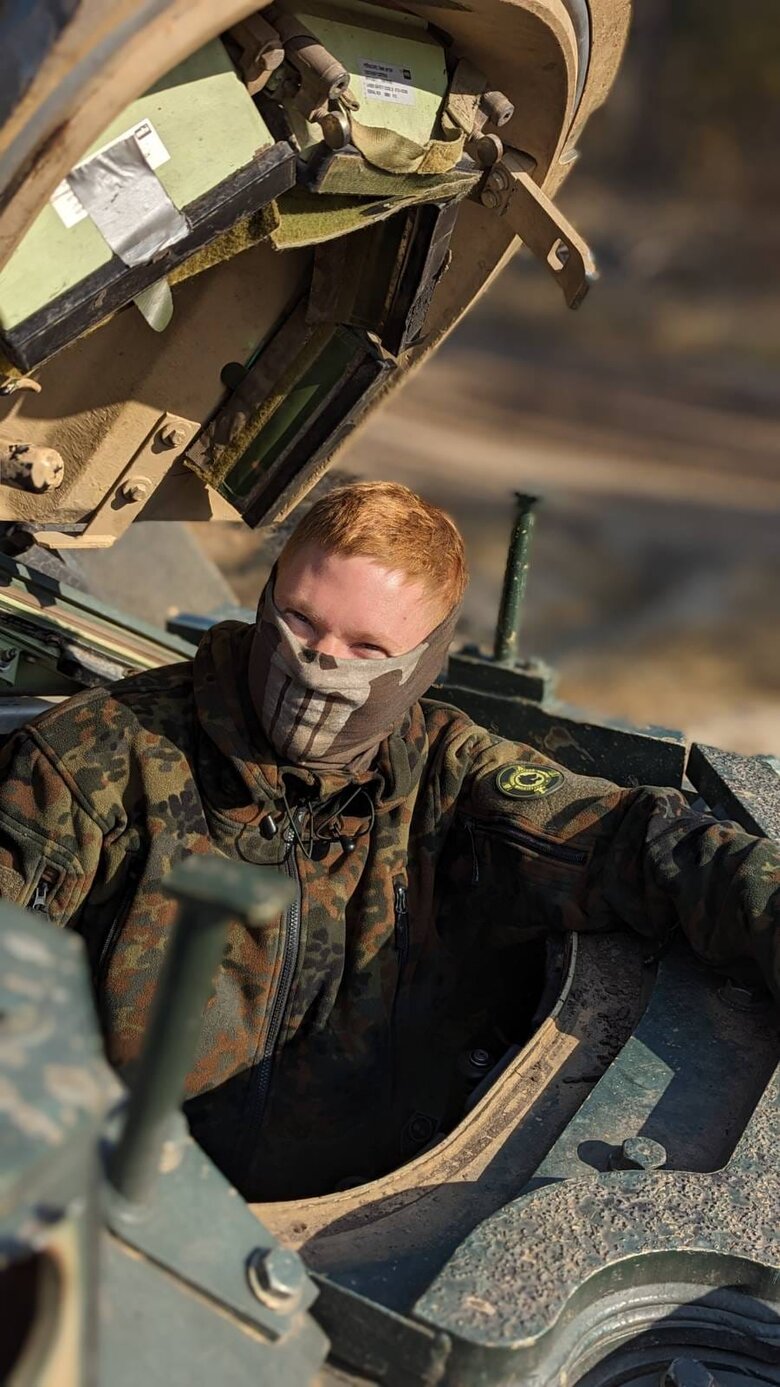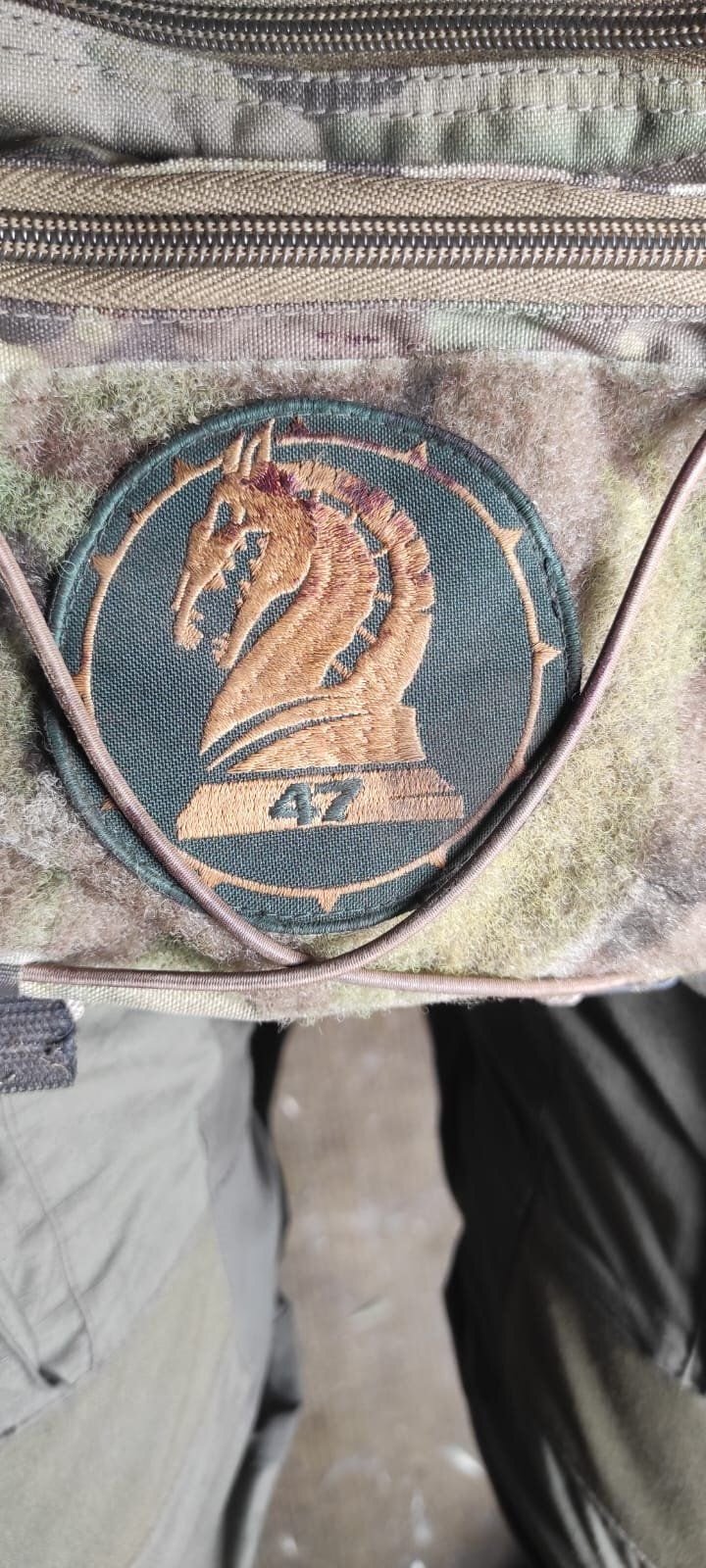"Kursk direction is characterized by very high concentration of enemy drones. This significantly complicates evacuation work," – medic with call sign Apelsyn (Orange)
In this interview, Denys Chykalov talks about the evacuation of the wounded, the fight against Russian drones using fiber optics, as well as the harsh realities of life in frontline Sumy and his perspective on Donald Trump’s ’peace initiatives.’
Do you remember the military medic with the call sign Apelsyn (Orange)? Censor.NET spoke to him last year, and even then, 23-year-old Denys Chykalov had already gained significant combat experience. He trained in the UK and Germany, worked in medical evacuation during the Zaporizhzhia counteroffensive and in the Avdiivka direction—saving lives and earning an order from the Commander-in-Chief...
Apelsyn is currently serving with the 47th Brigade in the Kursk-Sumy direction, near his native village.
– After serving in the Zaporizhzhia, Avdiivka, and Pokrovsk directions, you are now in your native Sumy region, providing medical support alongside your colleagues for the Ukrainian Armed Forces' operation in the Kursk direction. Is being stationed close to your home village something special for you, or is it just part of the everyday reality of this war?
– Unlike the Zaporizhzhia, Pokrovsk, and Avdiivka directions, here I have family, friends, and home nearby. It makes things a little easier. I’m a local, and my colleague is also local, so we went on a reconnaissance mission for military needs—we needed houses. And it was much easier to find them.
That’s one side of it. On the other hand, it’s quite tough because my village is just 1.5 kilometers from the border. Even though our forces are on the other side now, there are still some Russian troops there as well. This has led to more frequent shelling and FPV drone attacks targeting both civilians and the military. There have even been cases where entire families were attacked by FPV drones, as well as civilian buses...
So, it’s difficult. I drive 8 kilometers from my house, I see the turnoff leading home, but I can’t go there...
– What kind of shift schedule do you have to follow? Tell us—within the limits of what you can—about your work.
– This is a new direction for us, so it was difficult at first.
In general, the schedule is three days on duty, three days at home. But there were times when, after finishing my three-day shift, I would get a call telling me I had to cross over—to the other side, beyond the border—to scout evacuation routes. We would get in a vehicle, go, assess the situation, and sometimes stay there for a day.
– Just to clarify, the routes you were asked to scout were evacuation routes. There is a constant search for new ones because the Russians often target the old ones.
– Yes. Since FPV drones are now widely used, they quickly start targeting specific routes, forcing us to find new ones. And this keeps repeating: as soon as they identify a route, they begin attacking it. Then we’re faced with a choice—either take the risk and use the same route or find an alternative.
– Moreover, the Russians are now using drones connected via fiber optics. Please explain to the reader why fiber-optic drones pose a danger to evacuation vehicles.
– They are dangerous because they cannot be jammed by electronic warfare (EW) systems. These drones are equipped with a spool of fiber-optic cable that extends from the operator, making them immune to jamming.
– That’s why it’s necessary to keep searching for new evacuation routes, which is risky since the Russians heavily mine a lot.
– A new route is dangerous because you never know what might be there. That’s why it’s always risky. There could be mines or other obstacles, depending on the situation. The same applies to our work in general.
– Let’s go back to your current work schedule. So, three days on duty, three days off. Do you sleep depending on whether there are wounded or not?
– Yes. There are times of relative calm when the enemy is building up forces and resources, or when the weather prevents active combat, and things are quieter. And then there are days when assaults are nonstop. Sometimes, there are no wounded at all. Other times, there are a lot of them. Many factors influence this. And when we return home after a shift, we usually take a day to rest and get ourselves back in shape. After that, it all depends on the tasks at hand…
Due to bad roads, vehicles are constantly breaking down. And drivers, even on their days off, have to handle repairs.
– Well, at the end of the interview, we’ll ask our readers to give a little. But for now, tell us—have your responsibilities remained the same?
– Yes, they have to be the same. I’m a medical instructor. If there are new recruits or scheduled training sessions, I might use my days off to conduct training for the personnel.
– So, you're already a guru instructor?
– Not exactly a guru, but we pass on our experience, training the new recruits.
– How young are they? You're not that old yourself. Do you often have to train people who are older than you?
– Most of them are older. But now, after this law on AWOL, some younger guys are joining. We’ve had 24-year-olds, 20-year-olds, and even 18-year-olds.
– What do you think about the motivation of the people you train?
– It's different for everyone. It varies from person to person. Some are very motivated, while others don’t really care and don’t put much effort into learning.
– Can you explain to the readers what your role is during an evacuation? What exactly do you do?
- I handle the evacuation of the wounded—either from the casualty transfer point or directly from the frontline positions—and pass them on to the medevac. Sometimes, I can join the medevac team myself. What’s my role? If we’re moving in an armored vehicle, I act as the vehicle commander. The crew consists of a mechanic-driver, a commander, and a medic. I can be both a commander and a medic. Previously, I focused more on the medic’s role while someone else was the commander. Now that he has been transferred to another unit, I’ve taken over his responsibilities. I have to monitor the route, keep an eye on the road conditions, and guide the driver-mechanic...
– Have you often come under fire?
– The last time we went out on a mission, an FPV drone targeted us, but we managed to dismount quickly and continue on foot.
Artillery, FPVs, and ATGMs were flying past us, but thank God they didn’t hit.
– Is the enemy deliberately targeting our medics and evacuation vehicles?
– Yes, they are. If it were artillery fire, one could argue it was an accidental hit on medics. But there are plenty of videos online showing the enemy using fiber-optic FPV drones to specifically target medical vehicles—where the insignia clearly indicate that it’s an ambulance. You can see that these are emergency vehicles, and they deliberately destroy them.
– Does the Kursk-Sumy direction have its own specifics of evacuation?
– There is an extremely high concentration of drones—FPVs and drones with payloads. This significantly complicates evacuation work. Working with vehicles is also much more difficult due to drone activity.
– Do the crews have anti-drone rifles?
– We have EW systems and "barbecues." Our guys took the initiative and built these devices themselves. But anti-drone rifles are more suited for infantry. For us, they’re somewhat impractical and not very useful.
– In our previous interview, you mentioned that Valerii Zaluzhnyi awarded you the Cross of the Brave for your service. Since we last spoke, have you received any additional awards?
– Yes, I received the "For Saved Lives" medal for Pokrovsk direction.
– Congratulations! What was the life you saved?
– It was a very difficult evacuation under heavy enemy fire. We managed to save several severely wounded soldiers. That’s what we received the award for.
– What did the enemy use to fire at you back then?
– I was later told that they hit us with artillery and a tank.
– Now you and your comrades are providing medical support for our Kursk operation. Have you had any contact with the locals in the Kursk region?
– Not really. We just passed by them or drove past. Some would approach us to ask for a cigarette, that’s about it.
– We all remember what the Russian occupation regime has done in occupied territories—Bucha, Irpin, and so on. That’s why there is heightened attention to how our troops conduct themselves in the areas we have taken in the Kursk region. How strict is discipline among our forces there to prevent any reprisals against the local civilian population?
– From what I’ve seen with my own eyes, our soldiers bring water, dry rations, and other aid to the locals. In general, they help however they can. We are constantly reminded of the rules for treating civilians in wartime under the Geneva Convention. This is reinforced all the time, to make sure we don’t become like our enemies. I haven’t seen or heard of any incidents of mistreatment.
– Have your comrades said anything about the North Koreans that the enemy has brought in?
– I haven’t encountered them personally, haven’t seen them. I’ve only read the same things as everyone else online. I know they are there and that they’re taking part in assaults. But who they are or what they’re like—I only know from videos on the internet. Those attacks, where they just run in a crowd, those brutal wave assaults.
– I asked you about the people of the Kursk region. What about the residents of Sumy and the villages near the city? How do you feel the locals perceive the war in general and our military?
– When I lived in a village in the Sumy region (we were working in a different district at the time), our neighbors treated us very well. They helped us in any way they could.
Of course, there were also some issues. It was difficult to find apartments in Sumy because not everyone wants to rent to the military. Some people are afraid their building might be targeted just because a military vehicle is parked nearby. Others have different fears—who knows. But overall, I find the attitude here in Sumy much better than in other places. Maybe it’s because I’m a local.
– If locals do rent out their apartments to the military, do they ask for anything beyond the rent?
– It depends on luck and the people you meet. Rental terms are the same as for everyone else—monthly rent plus utility bills.
– What is the general atmosphere in Sumy? From what I’ve seen, the city has changed a lot since the start of the Kursk operation. Is there a sense of fear among residents?
– I don’t know if I’d call it fear, but the tension has definitely increased. Every night, their drones, Shaheds hits. Missile strikes have also become more frequent, and they’re hitting the city. There have been many cases where civilian homes were struck—places where ordinary people live. Many civilians have been killed or wounded. The shelling in the region has also intensified.
– At the same time, I get the impression that people haven’t developed the habit of running to bomb shelters.
– I can’t speak for everyone. Some take shelter, some don’t. My relatives, for example, take shelter when the air raid alert sounds when something is hitting. And they say that many others do the same. So it really depends on the person—some take shelter, others don’t.
– Do I understand correctly that the distance from the border to the city is so short…
– ...that sometimes strikes before the air raid alert even goes off. It can happen.
– Denys, have you had any leave? Where did you go?
– I had some time off just before New Year. But since I’m already "at home" in Sumy region most of the time, I figured I could go somewhere for a change. So my girlfriend and I traveled around Ukraine.
– What is the atmosphere like in your home village when you visit?
– The last time I went home, I barely saw anyone. People complain that the strikes have become more frequent, and drones are much more active. The tension has definitely increased. Before, something would hit about once a week, give or take. Now, it’s happening much more often.
– I ask every military person I talk to whether they are following Donald Trump’s attempts to push both us and the Russians into a truce. Are you keeping up with these developments?
– To follow it - no. Just to read the news - no more. As for expecting anything to come of it, I don’t know. I have little faith in any kind of truce. If there is one, I think it will be short-lived—just enough time for the enemy to regroup and regain its strength. And I believe they will attack again. I doubt they’ll stop.
– Denys, tell me, how do you cope with three years of war? How do you distract yourself from the blood, the deaths, the life between the emergency department and a rented apartment?
– It’s a little easier now because all my family and friends are here. I can meet up, grab a coffee in the city, or visit my parents—it makes things a bit easier. Last time, I mentioned that talking with my comrades and colleagues helped. Now, my family and close ones help even more.
– Do your family and friends usually come to see you?
– No. My family all live nearby, within walking distance. I can just drop by in the evening. Same with my friends—most of them live in the same courtyard.
– That’s cool, not many people have that opportunity!
– Right now, I do. In other areas, we were "at home" at other guys’ places. Some get lucky, (or not). But I wouldn’t want everyone to experience war at home. It’s better without it.
A brigade chevron stained with the blood of wounded comrades
– Finally, let me ask about your plans for life after the war. I'll quote from our last conversation: "I have a lot of options in mind. Maybe I'll stay in the military; maybe I'll choose a similar field—like the SES (State Emergency Service)—and continue saving lives. Or maybe I'll work with children."
What about now? Has any of the options you mentioned last time become more likely? Or has a new one emerged?
– First of all, I just need to live to see Victory. After that—I don’t know, maybe I’ll start my own business.
– What does your girlfriend say?
– She says we should think about something of our own. We’re considering starting a business!
– Well then, I wish her to wait for your return, and for both of you to find that very idea after the war
Attention: Those who wish to support Denys Chykalov’s unit with repairs for evacuation vehicles can donate here: (link to the bank)
Yevhen Kuzmenko, Censor.NET
Photo from the Apelsyn`s archive


